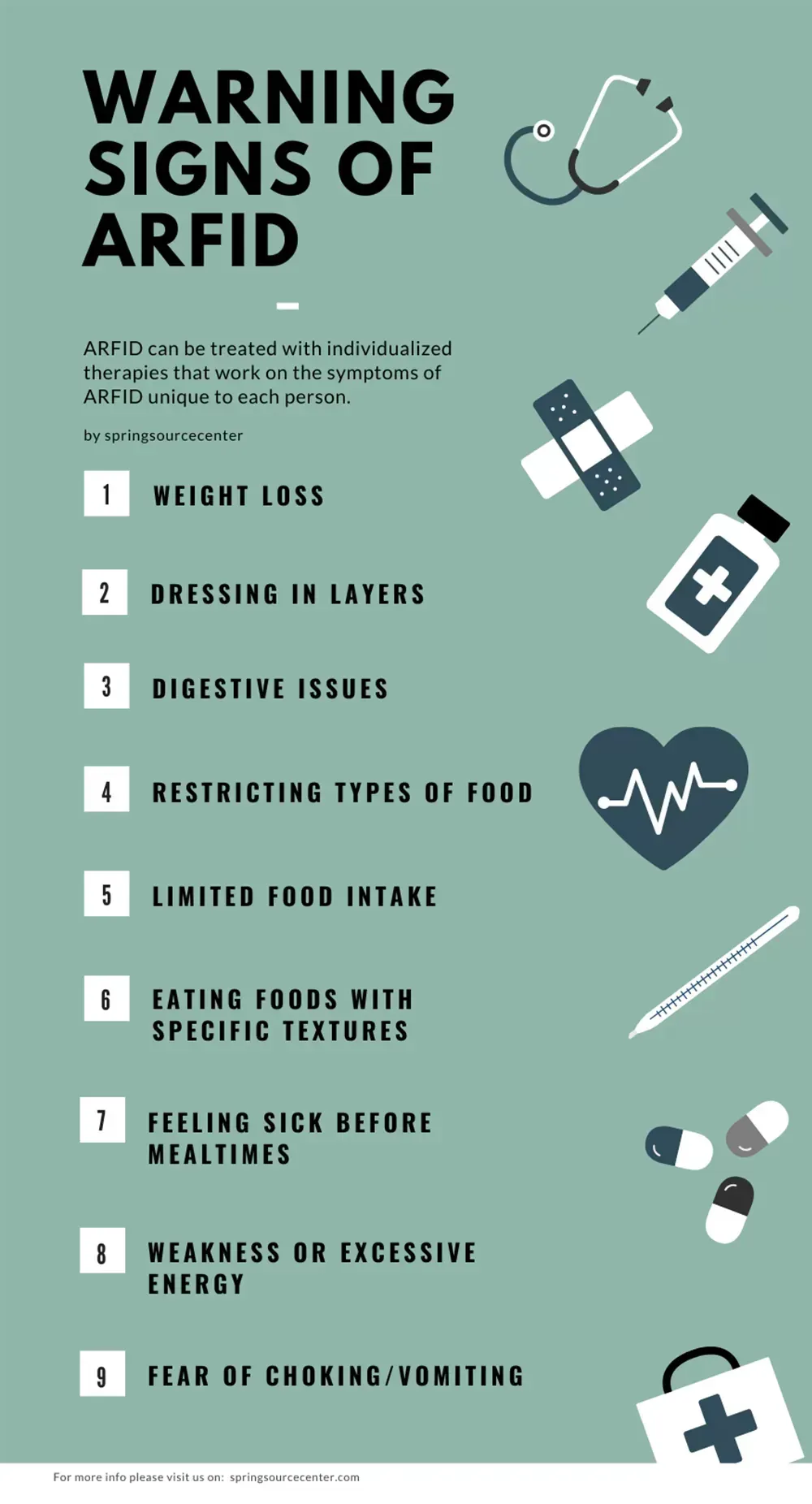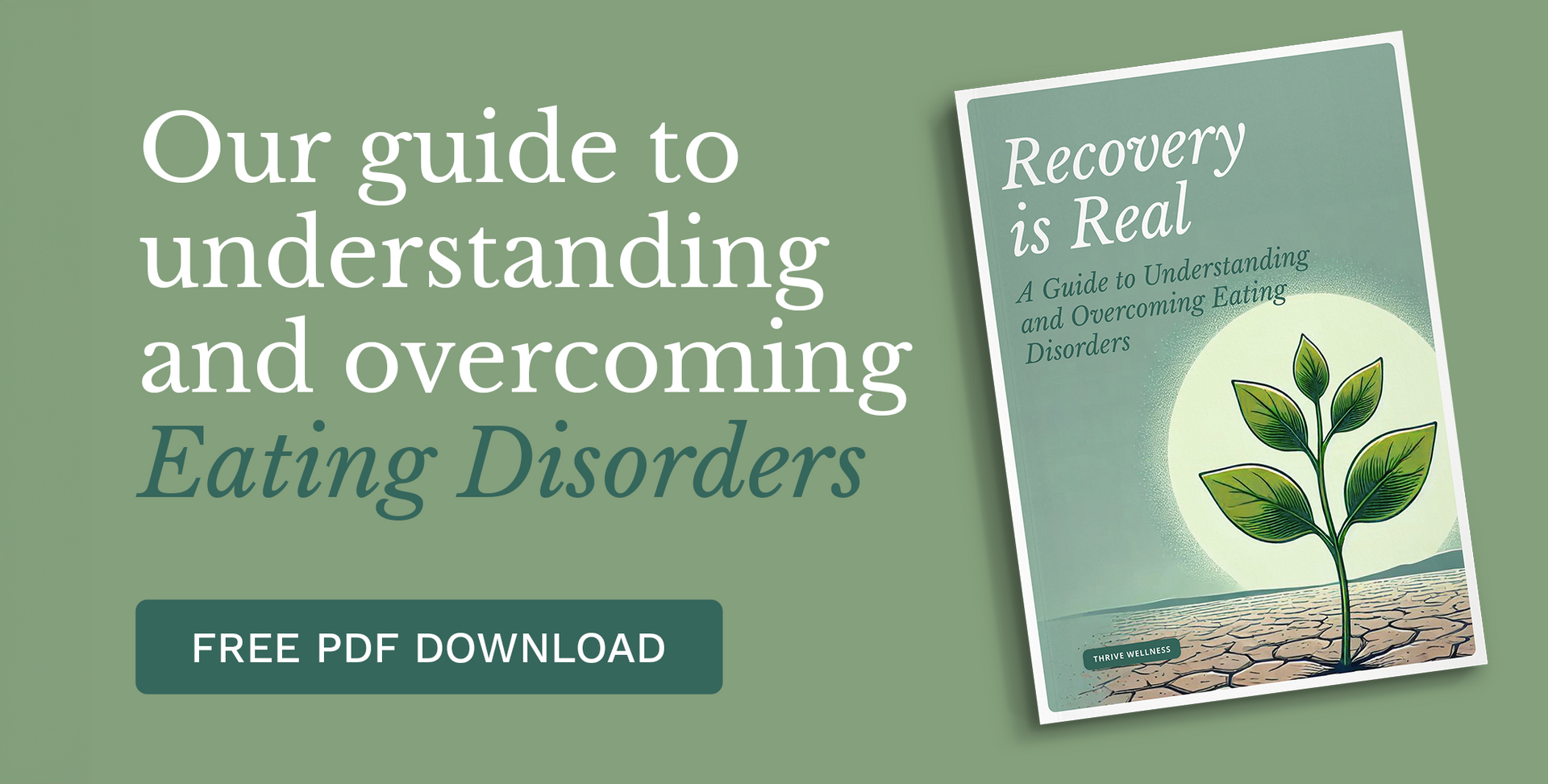ARFID Meaning: Understanding the Misunderstood Eating Disorder

What is ARFID?
Amongst eating disorders, Avoidant/Restrictive Food Intake Disorder (ARFID) is lesser known and often misunderstood. Unlike disorders like anorexia or bulimia, ARFID isn't motivated by body image or weight. Instead, it's characterized by a persistent avoidance or restriction of certain foods due to various reasons, leading to nutritional deficiencies and serious health issues. As ARFID gains more awareness, it's essential we explore what this condition entails to provide understanding and reach those in need of support.
Avoidant/Restrictive Food Intake Disorder (ARFID)
What is Avoidant/Restrictive Food Intake Disorder (ARFID)?
Avoidant/Restrictive Food Intake Disorder (ARFID) is an eating disorder marked by extreme food restriction or avoidance. Unlike other eating disorders driven by body image concerns, ARFID emerges from sensory sensitivities, fear of adverse effects from eating, or negative experiences related to food. These behaviors can significantly impact nutritional intake, leading to weight loss, negative effects on health, and in children, inhibited growth. Many people with ARFID struggle with meeting basic dietary needs, impacting healthy development and functioning. Although often initially diagnosed in children, ARFID can last into adulthood.
The causes and severity of ARFID can vary from person to person. Understanding these factors is critical for diagnosis and treatment:
Sensory Sensitivities: Aversions to specific textures, smells, or colors of food.
Fear of Negative Effects: Anxiety about choking, vomiting, or allergic reactions.
Traumatic Food Experiences: Past incidents that induce fear or avoidance.
Recognizing ARFID's unique triggers can facilitate accurate diagnosis and effective therapies.
Is Avoidant/Restrictive Food Intake Disorder (ARFID) the Same As Picky Eating?
A common misconception about ARFID is that it is "just picky eating". However, the two are different in their severity and impact. Picky eating is often a harmless phase in childhood that people typically outgrow without serious health implications. In contrast, ARFID involves intense aversions, leading to a restrictive eating pattern that can impact nutrition and development. Those with ARFID may avoid certain food groups all together and often experience severe anxiety around mealtimes.
The distinction between picky eating and ARFID lies in the degree and consequences of food avoidance. Unlike picky eaters, those with ARFID face significant obstacles that affect their social lives and overall well-being. The psychological component is real, causing complications that extend beyond mere preference in foods.
How Common is Avoidant/Restrictive Food Intake Disorder (ARFID)?
Though ARFID is a relatively new classification (first added to the DSM-5 in 2013), its recognition is steadily increasing in various clinical settings. This condition is more prevalent in younger populations, with up to 15.5% of children and adolescents being affected by ARFID (NIH). While seemingly rare amongst adults, increased awareness has led to more frequent diagnoses.
Although it is not as commonly known as other eating disorders, ARFID’s growing rate of diagnoses underscores the importance of awareness and education. With increased understanding, healthcare professionals are more frequently recognizing and diagnosing ARFID, a crucial step in providing necessary interventions.

Symptoms and Causes
What are the Signs and Symptoms of Avoidant/Restrictive Food Intake Disorder (ARFID)?
Lack of appetite, disinterest in food, notable weight loss, and a failure to gain weight mark the disorder’s physical symptoms, affecting overall health and development. ARFID can affect people in a variety of ways, but understanding common signs is the first step towards effective treatment. These signs can include:
Limited Food Range: Preference for certain foods, often based on sensory features like taste, smell and texture. These specific foods are termed as "safe foods."
Psychosocial Difficulties: Anxiety at social events involving food, impacting daily interactions. People with ARFID may feel uncomfortable eating or trusting food that they did not source from their home, like at restaurants or school.
Recognizing these symptoms can facilitate early diagnosis and treatment, promoting better health outcomes for someone living with ARFID.
What are the Risk Factors for Avoidant/Restrictive Food Intake Disorder (ARFID)?
Several risk factors contribute to the development of ARFID, originating from both biological predispositions and lived experiences. Understanding these risks aids in early identification and potential prevention strategies, tailored to those predisposed to the disorder:
Genetic Predisposition: Someone with a family history of anxiety or other mental health conditions may be more susceptible to developing ARFID.
Traumatic Feeding Experiences: Traumatic experiences with food, like choking or vomiting, can instill long-lasting aversions to certain foods.
Neurodivergence: Neurodevelopmental differences like ADHD and autism spectrum disorder can lead to hypersensitivity around food texture, taste, and smell, resulting in co-occurring ARFID.
Diagnosis and Tests
How is Avoidant/Restrictive Food Intake Disorder (ARFID) Diagnosed?
Diagnosing ARFID involves a thorough assessment by healthcare specialists, including evaluating eating habits, medical history, and nutritional intake. Clinicians utilize screening tools and assessments to gather details about patients' eating patterns and associated distress. The diagnostic criteria are detailed in the DSM-5, highlighting nutritional deficiencies or physical health issues as a result of limited food intake. A common screener used for diagnosing ARFID is the Nine Item Avoidant/Restrictive Food Intake disorder screen (NIAS).
Proper screening is crucial for distinguishing ARFID from other possible conditions. Diagnosis among healthcare providers often includes:
Questionnaires and Interviews: Collect data on eating behaviors and anxieties.
Nutritional Assessments: Identify any deficiencies or health issues.
Psychological Evaluations: Reveal any contributing mental health issues or fears.
Engaging a multidisciplinary approach ensures correct diagnosis and helps inform an effective treatment plan, paving the way for improvements in symptoms.
Management and Treatment
How is Avoidant/Restrictive Food Intake Disorder (ARFID) Treated?
Treating ARFID requires a comprehensive, multidisciplinary strategy that includes psychological, nutritional, and medical components. In severe cases, medical supervision or residential treatment may be employed to resolve health complications and restore weight. Here are some key strategies in treating ARFID:
Cognitive-behavioral Therapy: Used to tackle the negative associations or fears related to food.
Exposure Response Prevention Therapy: Supervised exposures to new foods can be effective in lowering the anxiety response around feared foods and outcomes.
Nutritional Counseling: Meal plans tailored to address and overcome deficits while expanding the diet.
Family Involvement: Family-based therapy, particularly in children and adolescents, can bolster familial support and improve dynamics around eating.
A targeted and integrated treatment fosters a supportive environment for those living with ARFID, facilitating recovery, restoration of weight and improved health.
Who Treats Avoidant/Restrictive Food Intake Disorder (ARFID)?
ARFID is usually treated by a team of healthcare professionals collaborating to address both its psychological and physical aspects. Each professional plays a vital role:
Psychologists/Therapists: Psychologists or therapists who specialize in treating eating disorders focus on cognitive and behavioral interventions to lessen anxiety around eating.
Dietitians: Design and implement personalized meal plans addressing deficiencies and guiding nutritional changes for patients and their families.
Medical Providers: Physicians or pediatricians monitor broad health impacts and support treatment continuity, ensuring health issues do not worsen.
Occupational Therapists: Assist with sensory processing challenges tied to food
Together, this multidisciplinary team provides comprehensive care that addresses each facet of ARFID.
What if my Child has ARFID?
ARFID can be challenging for both children and their families. If your child has been diagnosed with ARFID, the first step is to seek professional support from a pediatrician, therapist, dietitian, and possibly an occupational therapist. These professionals can work together to create a comprehensive treatment plan tailored to your child's needs. Engaging in family-based therapy can also be beneficial, where parents and siblings learn how to support the child around mealtimes. Incorporating gradual exposures to new foods through exposure response prevention therapy can also be helpful. Additionally, finding online resources and support groups for parents dealing with ARFID can provide further guidance and emotional support. Remember, patience and understanding are key as recovery will take time.
Living with ARFID
Living with ARFID can deeply impact someone's daily life. People's anxiety around eating and mealtimes can negatively affect comfort around social engagements involving food, leading to isolation and depression.
Identifying and addressing the disorder’s psychological and physical aspects can allow those affected to live more functional and full lives. Through intervention and a strong support system, individuals with ARFID can better manage their disorder and overcome anxieties, improving their overall quality of life.
When Should I See a Healthcare Provider?
If your eating patterns are negatively affecting your physical health or social life, it's time to seek professional guidance from a healthcare provider. Notable weight loss and nutritional deficiencies linked to food avoidance and restriction also warrant an evaluation. If anxiety around eating deprives you of a balanced diet, or symptoms influence your ability to complete daily tasks and result in emotional distress, pursue professional intervention. Proactively seeking a diagnosis and care can improve treatment outcomes and increase the odds of recovery from ARFID.
What Questions Should I Ask My Doctor?
When speaking with a healthcare provider about ARFID, it’s important to cover all aspects to ensure there is complete understanding and effective treatment in place. When asking questions about ARFID, make sure to focus on:
- Understanding Symptoms: Confirm how ARFID differs from other eating disorders.
- Exploring Treatment Options: Discuss the best strategies for your case.
- Engaging Support Services: Reach out to local or online resources for additional support.
Asking thorough questions allows you to work together with your healthcare providers to navigate ARFID's challenges. Find more important questions to ask your healthcare provider here.
Moving Forward with ARFID Awareness
The journey of understanding and diagnosing Avoidant/Restrictive Food Intake Disorder (ARFID) can be complex, given its differences from other more well-known eating disorders. By raising awareness and educating people about ARFID, opportunities for accurate diagnosis and effective treatment increase, offering real hope for those affected. A multi-disciplinary treatment approach remains essential in achieving recovery and building a healthy relationship with food. As ARFID becomes more widely recognized, increased awareness and effective treatment approaches will continue to open doors for people to access needed support, find recovery, and live fuller lives.
If you or someone you know is experiencing symptoms of ARFID, don't wait to seek help. You can find specialized treatment for ARFID at Thrive Wellness.









